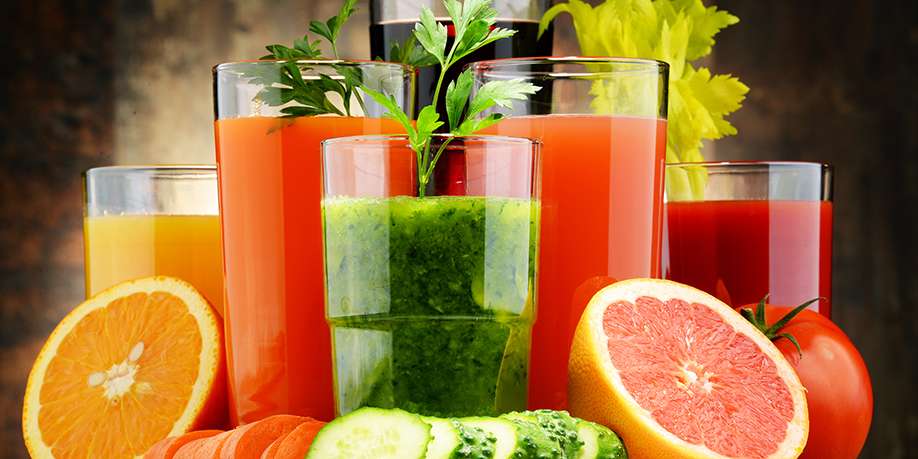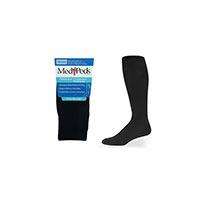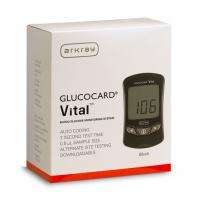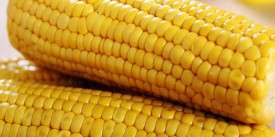
What Juice Is Good for Diabetics and What Juice Should Diabetics Avoid?What Juice Is Good for Diabetics and What Juice Should Diabetics Avoid?
  © Monticelllo | Dreamstime.com Juicing can be a good way to up your intake of fruits of vegetables and keep hydrated. However, transforming fresh fruit and vegetables into juice can have several drawbacks for people with diabetes. Living with diabetes means that you need to pay close attention to everything you eat and drink. The most important thing to be aware of is the number of carbohydrates you ingest because these may affect your blood sugar. Whether you have type 1 or type 2 diabetes, it's crucial to know what juice is good for diabetics and what juices you should avoid. Below you'll find information about what juices work for diabetics and the ones you should steer away from. Types of juice suitable for diabetics Preventing a spike in blood sugar is the number one concern diabetics should have when choosing their drinks. The safest drinks to reach for if you have diabetes are water, unsweetened tea, unsweetened coffee and sugar-free drinks. When it comes to juices, it's paramount to choose drinks that are low in sugar. Because most 100% fruit juice has a similar sugar content to soda, it's best to avoid them if you have diabetes. Both 100% fruit juice and soda have approximately 20-26 grams of sugar per 240 ml (1 cup). Instead of going for fruit juice, the best option for diabetics is to drink tomato juice instead. Water or unsweetened tea should always be the drinks of choice if you have diabetes, but if you want a change, drink tomato or other vegetable juice instead of sugary fruit juices. Juices made from non-starchy vegetables are another good choice for diabetics. Choose vegetables such as cucumbers, kale, celery or broccoli, which don't contain too much sugar and won't have an impact on your blood sugar. Pomegranate juice is another suitable juice option for diabetics, albeit an unexpected one. Even though pomegranates are sweet, their juice has been found to help protect against heart disease and diabetes due to their rich nutrient and antioxidant profile. Even though the level of sugar in pomegranates is similar to that of other fruit juices, researchers found that this juice did not influence the diabetes markers of participants to studies. Finally, smoothies are better for people with diabetes than juices because they're made with the entire fruit, not just the juice, so you can benefit from the fiber intake. By making your own smoothies, you can also make sure that there's no extra sugar added, as it's often the case with store-bought ones.
Juices that diabetics should avoid Diabetics should avoid all juices that are high in sugar, including fructose corn syrup, and most of the store-bought juices typically fall into this category. As such, try to avoid most store-bought juices. It's always a good idea to make your juices at home when you live with diabetes, because that way you can choose the fruits and vegetables that go in them and make sure they don't have a very high sugar content. Many people wonder why it is fine to eat whole fruits but avoid juices when you have diabetes. Fruits contain fiber, minerals, and vitamins, which are all important for your overall health. The fiber in the fruits helps to slow down fructose as it's absorbed in the bloodstream, which makes you feel fuller for longer. On the other hand, fruit juices have most of the fiber removed and it's very easy to rink large quantities in a short period of time. As a result, you could be drinking a lot of extra carbs, sugar and calories. You should also avoid fruit-flavored drinks and fruit punches because they typically contain as much sugar as soda. Juices that use high amounts of artificial flavoring are also best to be avoided, as they typically have lots of sugar and the flavors make them tempting, so you may end up drinking more than you intended. This doesn't mean that you should never touch 100% fruit juices, but you should only drink them occasionally and in moderation. You can have an occasional glass of 100% juice as a treat, but you should always remember to count the carbs and include them in your daily total. You should also be prepared for the blood sugar spike that glass of juice might cause. You should also try to limit the amount of juice you drink at one time. A glass between 4 and 8 oz. should be more than enough.
Bottom line If you have diabetes but still want to enjoy a glass of juice once in a while, there are multiple safe ways to do so. However, it's essential to pay attention to the amount of carbs in the juices you drink, monitor your blood sugar constantly and seek the advice of a heath care professional for extra guidance.
| |||||||||||||||||||||||||




























